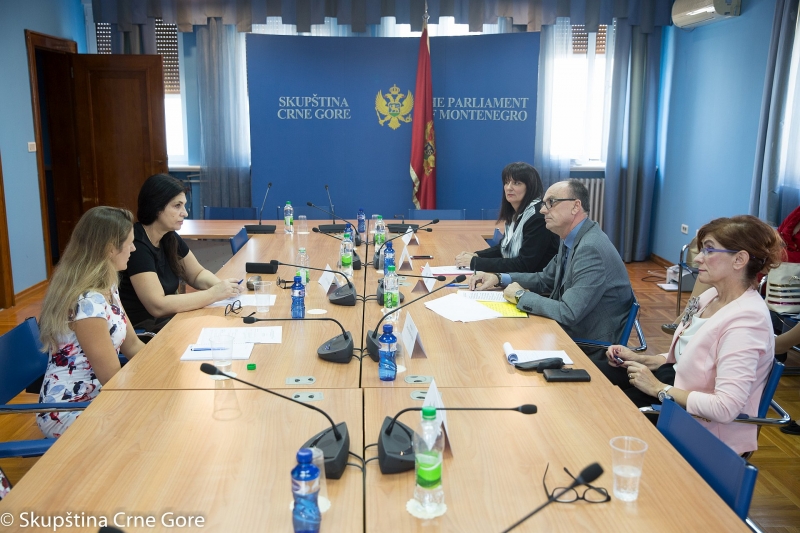The Chairperson and the member of the Committee informed the OSCE expert about responsibilities of the Committee, structural and procedural capacities of the Committee, stressing proposals for further improvement of the Committee’s work.
The Chairperson of the Committee expressed pleasure with the fact that OSCE Mission to Montenegro has recognised the importance of the Administrative Committee and showed readiness to support its work through two activities, hoping that they would be implemented in the manner they were presented. He emphasised that the Administrative Committee was the only parliamentary working body that, in addition to the legislative and control function, directly applied the laws and continuously passed individual acts related to employment rights of officials elected or appointed by the Parliament. In that sense, he said that the education conducted by the OSCE was of particular importance for the members and staff of the Administrative Committee. Furthermore, he noted that this committee has the most direct cooperation with citizens, the media, civil society and independent institutions, which is confirmed by the daily communication with the mentioned subjects, the number of published articles in print and electronic media, TV shows, and the number of submissions in correspondence with the institutions. The Chairperson of the Committee particularly referred to complexity of procedures for election, appointment and dismissal, as well as with regard to enjoying or lifting the immunity of the members.
After learning about responsibilities of the parliamentary committees and performance report of the Administrative Committee, the OSCE expert stressed that this was the most important committee in terms of responsibilities, being also the Committee with broadest responsibilities.
They agreed three thematic seminars for members and staff of the Committee, related to the best practices in the legislative and oversight practice of parliamentary working bodies, as well as to improving communication with citizens, media, civil society and independent institutions.












